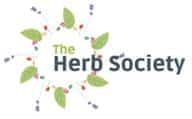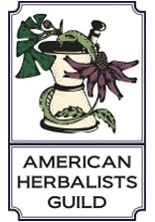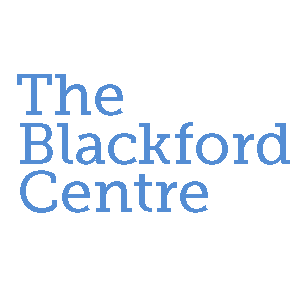Herbal Medicine Course
About Herbal Medicine Courses
So you’re looking at herbal medicine courses…
but you’re not quite sure what’s involved?
Herbal medicine courses show students how to identify plants with medical properties, and understand their uses.
And these herbal courses are especially designed to teach students the proper use of herbs in treating today’s ailments and health conditions.
Generally, courses on herbal medicine assume that the student has little knowledge of the subject. So coursework begins with a basic introduction to herbalism. The student learns the practical side of the work and also its theoretical foundations.
When you register on a herbal medicine course, you’ll discover some of the other aspects of herbalism. You may be amazed at the variety of topics:
- Organic gardening
- Chemistry
- Biochemistry
- Nutrition
- Ecology
- Homeostasis
- First aid remedies
Herbal medicine courses also provide their students with the knowledge to create customized herbal preparations, as well as to grow herbs.
Many schools also include coursework on client communications in addition to the fundamentals of herbalism.
You’ll also discover that different institutions offer varying grades of accomplishment you’ll receive once you finish the study. You may receive a Certificate, a Diploma or a Degree.
And as one thing leads to another, you may continue your studies even further. Many students get so absorbed in the study of herbalism that they pursue a bachelor’s degree that not only includes herbal medicine, but holistic health and even the wider field of complementary medicine.
Thus you may also study disease prevention as well as health management, through the use of medicinal herbs.
Why Should I Take a Herbal Remedy Course?
Most people who embark on an herbal medicine course know why they’re pursuing this course of study.
Some have already received the benefits of healing and want to, in turn, help others.
Others find that they’re drawn to the lure of healing without the use of harsh prescription drugs and the often unwanted, dangerous side effects.
Still others pursue herbal medical courses because they see the growing popularity of herbal healing, are excited by its future, and want to be a part of this satisfying profession.
So the reasons for taking a herbal medicine course are as diverse as those who study the topic.
Perhaps you’re a freelance writer who specializes in natural health writing? The addition of being a herbalist may just be the kick start your career needs to do more writing, and get better paying assignments as well.
A growing number of nurses and other conventional health-care providers are discovering that herbal medicines benefit their patients. Buoyed by the increase in scientific studies, more professional medical personnel are finding that a herbal medicine course helps them treat their patients.
And maybe you want to take this herbal course to resolve your own health concerns and those of your family’s, without resorting to synthetic drugs! Many individuals study for this reason alone.
They discover that not only does herbal medicine help, but its remedies protect their families from the harsh adverse side effects of many prescription drugs.
What’s The Best Form Of Study - College Or Distance Learning?
Only you can answer that, because everyone’s needs are different.
A college course gives you face-to-face access to teachers and other students. And practical work is easier, too.
But many of us can’t afford to take time off work, or the money needed to invest in a three-year course.
If your schedule is typical, a long distance course is the simplest choice.
A quality home-study herbal medicine course offers a high-quality education in herbs and their uses, and it’s more flexible. It allows you to:
- Work at your own pace
- Work in the privacy of your own home
- Avoid the commute to classes
- Save money on textbooks
What Type Of Experience Do I Need To Study A Herbal Medicine Course?
You really don’t need any specific background or prior education to take a course in herbal medicine. All you need is the desire and willingness to learn more about the practical uses of herbs, as well as why they have helped so many individuals.
Students of herbal medicine come from all walks of life, from doctors to nurses and other health care providers of conventional medicine. Many individuals, though, have been life-long proponents of complementary medicine who have finally decided to learn even more about the use of herbs for medicinal purposes.
On herbal medicine courses, you’ll find physicians learning side by side with stay-at-home mums. And midwives may be absorbing this material along with health store owners who want to learn more about what to provide a fuller range of advice to their customers.
If you’re interested in a course in herbal medicine, don’t imagine that it requires a degree in chemistry or botany. The college will give you all the knowledge you’ll need as you take the course.
What Kind Of Job Can I Get After Doing A Herbal Medicine Course?
There’s no limit to the career opportunities for graduates of herbal medicine courses.
Many of the students already have well-defined careers, and are taking the herbal course to expand their services and income.
Others will become self employed herbalists. And this includes a range of choices. Some, after taking this course, will grow their own plants and perhaps open small, local shops. Others will offer advice and herbal mixtures to a clientele.
Other individuals will use this knowledge, and write and publish books. If you’ve taken a herbal course and have a flair for business, you may decide to run your own herbal supplement business, manufacturing your own personal brand of products.
Some students opt to become counsellors, teaching other people about the use of these natural marvels of healing.
And of course, there are teaching positions available. In addition to alternative colleges of medicine, a growing number of orthodox colleges and universities are adding courses on the use of herbs. In fact, in the United States alone more than 35 of 125 medical schools now offer some form of herbal medicine course for their students.
The worldwide demand will undoubtedly grow as herbalism becomes even a more accepted form of healing and natural therapy.
But you don’t need to limit yourself there. Some students are so fascinated with the use of herbs that they decide to research the use of herbs even more. In fact, an entire branch of anthropology is dedicated to this topic. It’s called ethnobotany. Those involved in this study the use of herbs in various cultures. They investigate not only the medicinal use of these plants, but also how cultures use this in religious settings.
Why Is Herbal Medicine So Popular?
Knowing why herbal medicine is the choice of many people may be able to help you discover new paths in your newly chosen career.
The sad fact is that with each passing year the allopathic approach to medicine – and especially its reliance upon the prescription drugs – actually disappoints more and more people.
Pharmaceuticals – and the large companies which make them – are not seen as the darlings nor the saviour of the medical world as they were more than 50 years ago. In fact, the statistics are stacking against them daily.
In the United States alone –just a small portion of the global drug market – more than 400,000 people die every year from what Phyllis A. Balch calls in her book Prescription for Healing, (Avery, 2002) ‘predictable’ side effects of prescription drugs.
Of those, almost 7,000 of those people actually die while they are patients in hospitals. That doesn’t even take into account the number of individuals who die from the unpredictable effects of these drugs, like the wrong combination of drugs.
The cost of allopathic medicinal care
Cost is another factor that plays into a person’s decision to at least give herbal medicine a try. The costs of treating chronic diseases are staggering – depending on the disease itself and the severity of the illness.
Taking control of your health
One of the most compelling advantages to using herbal medicine for many, though, is the ability to take control of their health.
People have felt for years that they were slowly losing control over the right to the path of their health. They were to, according to some unwritten rule, accept their doctor’s opinion without question. Even the practice of getting a second opinion was slowly being deemed somehow inappropriate.
Another reason for the growing use of herbs is the increasing acceptance of herbalism as complementary medicine. This means that therapy with herbs is used side by side with allopathic or conventional medicine.
As a student of a herbal medicine course, you’ll discover a new vista of opportunities for career choices in the twenty-first century.
Your registration and study in any of the herbal medicine courses offered today can be a valuable tool in helping you make that next logical step in satisfying your interest in herbal medicine.
You’ll just be satisfying your curiosity and meeting your health needs – and those of your family. In addition, by earning certification, you may be able to eventually help other’s alleviate their health conditions in a natural fashion.
Imagine being able to alleviate your headache – or that of your friend’s — with the herb feverfew instead of a strong prescription drug. It may work for you . . . and scientific studies are producing the evidence.
Imagine controlling your cardiovascular problems – or your neighbour’s — with the herb Hawthorne. It’s been used for centuries in Europe . . . still used routinely by medical doctors in Germany today . . . and medical research is now showing us why.
Even imagine dealing with the daily pains of your fibromyalgia with a combination of natural plants and herbs. Herbs such as white willow bark – a natural pain reliever – are actually the medical basis for aspirin.
You probably already are among the growing population who use natural herbs at least as part of your routine health care. If that’s the case, you already have a good idea of what herbal medicine is. If you can’t actually define it, you definitely know it when you see it.
As the oldest form of medical treatment, herbal medicine approaches healing from a natural plant-based perspective. A herbalist chooses from hundreds of plants – and uses them in a variety of preparations – to alleviate symptoms, prevent specific health conditions or improve a person’s overall health and wellbeing. You may also hear this system of healing referred to as botanical medicine or even phytomedicine.
Growing demand for natural treatments
At one time, this form of healing was abandoned by all but a few. In the mid-twentieth century the rapid growth of pharmaceutical drugs led many to assume that herbal medicine was not only ineffective, but based more on superstition and ignorance than any sound botanical knowledge.
Today, however, that view is changing. And changing quite rapidly. Thanks to the near constant stream of confirming medical studies being published, herbal healing is on the rise.
To gauge its popularity you need only look to Germany. In this country, more than 500 plant-based medicines are not only available to the general public but are being prescribed by nearly 70 percent of that country’s practising physicians.
In addition, the World Health Association estimates that nearly 80 percent of the global population rely on some form of herbal medicine as their primary treatment.
The pharmaceutical companies have by no way dismissed the natural power of plants. They use these plants to produce some of the most popular and effective prescription drugs on the market today. Many individuals are surprised to learn that nearly one-quarter of the prescription medications dispensed today are derived from plant ingredients.
What’s The Future Of Herbal Medicine?
It’s only beginning of a powerful growth in the interest and use of these all-natural remedies, according to Steven B. Kayne, author of Complementary Therapies for Pharmacists (Pharmaceutical Press, London, 2002).
Kayne sees the future of herbs growing along a dual path. Traditional herbal practice will only grow, he says, as more people discover its uses. Not only will be used as an alternative to orthodox medicine, but he predicts it will be increasingly incorporated into the orthodox medical setting.
And, of course, herbs will always remain a fundamental tool of the pharmaceutical companies which search out new solutions, isolate the active ingredients of the plants and then create new prescription medications.
References
http://www.vitaminsdiary.com/herbal-remedies.htm, accessed 13 Nov 08
Van der Zee, Barbara; Griggs, Barbara, Green Pharmacy, Inner Traditions/Bear & Co, 1997, Rochester, VT.
Kayne, Steven, Complementary Therapies for Pharmacists ;Pharmaceutical Press, London, 2002.




